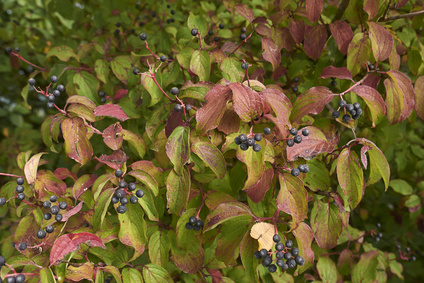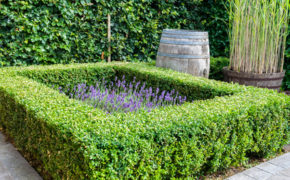
Get a quick no obligation quote It’s free and will only take a jiffy!
Dogwood Tree
Dogwood is a very attractive plant. Read on to discover how to identify dogwood; what the most common diseases and pests are and the best way to prune and care for your dogwood tree.
Dogwood is a small, deciduous broadleaf shrub. Its bushy appearance makes it popular as a hedgerow and woodland edge plant. It is common in the south of England where it is widely used as an ornamental tree in formal gardens. In autumn, dogwood is particularly attractive.
Cornus sanguinea as it is known scientifically is notable for its diversely coloured twigs. When the sun shines the twigs are crimson, whilst in the shade they appear a lime green shade.
General Facts
| Known as | Common dogwood, blood twig, |
| Latin name | Cornus sanguinea |
| Location | UK native, Europe |
| Foliage | Deciduous |
| Lifespan | 80 years |
Characteristics
| Height | 2.5 metres |
| Spread | 2.5 metres |
| Appearance | A deciduous shrub with a bushy, upright habit. Young shoots are red coloured during the winter. Bark is grey and smooth with shallow ridges. Twigs are smooth, slim and straight. |
| Leaves | Leaves are green and oval measuring around 6cm in length. They have smooth sides and notable curving veins. The leaves fade to a rich crimson colour just ahead of falling in autumn. |
| Flowers | Dogwood flowers are small and creamy-white with 4 petals, appearing in clusters. |
| Fruit | Once the flowers are insect pollinated, they transform into small black berries called dogberries. |
| Found in | Ornamental gardens |
Conditions
| Ideal soil | Moist but well drained chalk, clay, sand or loam |
| Soil pH | Acid, alkaline, neutral |
| Aspect | North, south, east or west facing |
| Exposure | Sheltered or exposed |
Threats
| Pests | Horse chestnut scale |
| Diseases | Cornus anthracnose |
Dogwood and Wildlife
Moth caterpillars very much enjoy the leaves of the dogwood tree. These include the case-bearer moth. Insects love the flowers and a host of birds and mammals are fans of dogberries.
Dogwood Symbolism and History
The name ‘dogwood’ derives from the smooth, straight twigs which were used to make butchers’ skewers which used to be known as ‘dags’ or ‘dogs’. So the name actually means ‘skewer wood’.
The Importance of Dogwood
Dogwood is an important ornamental plant for gardens, especially formal gardens, and is planted for its eye-catching autumnal colour.
Caring for a Dogwood Tree
Dogwood really can benefit from hard pruning at the right time of year. Its stems will grow back all the more colourful, making winter gardens even more appealing. Dogwood stooling is good practice. It is similar to coppicing and results in the tree growing back vigorously. Providing it is done during late winter to early spring and before the new leaves appear on the stems, you will enjoy maximum time with your gloriously coloured stems.
It is advisable to prune the dogwood just as its new growth starts and before the growing season becomes fully active.
If you want to promote richly coloured stems, you’ll need to wait until the plant is one to two years old. Never hard prune a young dogwood tree.
Dogwood pruning is a very specific process. If you are in any way unsure as to the best way to proceed, your best course of action is to call in the experts. Qualified tree surgeons will know precisely when and how to prune your dogwood for best results and to promote the health of the tree.
For more about dogwood tree pruning, follow this link.
If you have a dogwood tree that would benefit from a little care and attention from professional experts, talk to T.H. Tree Services. As highly qualified and extensively experienced tree surgeons, we can offer in-depth knowhow across all aspects of dogwood tree care. For a free, no-obligation quotation, call us on 01268 642814 or get in touch here.
Had a fallen tree in the early hours of Monday morning, called for quote and the team had it cleared on the same day. Really good communication when the lads were onsite and did a great job. Lots of pride in their work shown with the thorough clear up. Would thoroughly recommend.
Thank you Stuart for your kind review. We were glad to be able to help you with your fallen tree. If there's anything else you need in the future, please don't hesitate to get in touch.







